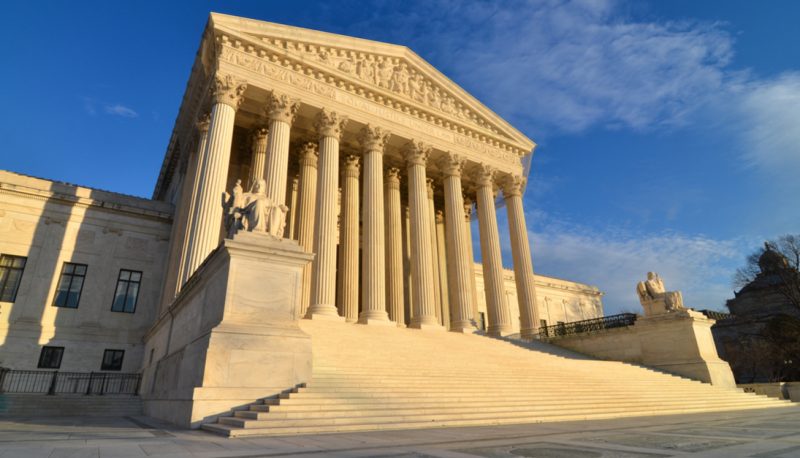“Confirmed Judges, Confirmed Fears” is a blog series documenting the harmful impact of President Trump’s judges on Americans’ rights and liberties. Cases in the series can be found by issue and by judge at this link.
Trump DC Circuit judge Neomi Rao argued in dissent that the court should dismiss a challenge to the federal execution protocol adopted by the Trump-Barr Justice Department because it violates a federal law requiring medical prescriptions for the drug used in executions. The majority rejected Rao’s argument and ruled that the protocol violates federal law, although it declined to stay any scheduled executions in its November 2020 decision in Roane v Barr.
Several federal death row prisoners challenged the 2019 revised federal death penalty protocol promulgated by the Trump-Barr Justice Department, including the use of pentobarbital as the drug to be used for lethal injections. One claim was that the use of the drug violated the Eighth Amendment prohibition on cruel and unusual punishment because of evidence that it results in “respiratory distress,” sensations of “drowning and asphyxiation,” and “extreme pain, terror, and panic” that is “comparable to death by drowning.” The prisoners also contended that the use of the drug violated federal law that mandates that pentobarbital can be used only with a doctor’s prescription, which the government did not obtain for its use in executions.
Even as the Supreme Court has issued closely divided decisions that have lifted stays of federal execution on these and other grounds, the underlying litigation against the Trump-Barr execution protocol has continued. Earlier this fall, a DC federal district court dismissed the plaintiffs’ Eighth Amendment claims. Although it also held that the use of pentobarbital requires a prescription under federal law, it declined to enjoin its use in executions or to set aside the protocol.
On appeal, all three judges on the DC Circuit panel agreed that the Eighth Amendment claim should not have been dismissed and that it should be considered on the merits in the district court, although they did not order any stays of execution based on them. The three judges were divided, however, on the remaining issues. A 2-1 majority ruled that federal law does prohibit the use of pentobarbital without a prescription and that the execution protocol must be “set aside” because it is “not in accordance with law.”
Trump judge Rao dissented. She argued that applying the federal law mandating prescriptions for use of pentobarbital “is inconsistent” with the statute and applicable precedent. She also claimed that the prisoners have “no authority to challenge” the decision of the Food and Drug Administration (FDA) not to enforce the prohibition on the use of the drug without a prescription in the context of executions.
The majority explained what was wrong with Rao’s arguments, which were similar to those raised by the government. The majority wrote that there was “no question” that the text of the law and applicable regulations provide that “prisoners are generally entitled to the protections” of the “prescription requirement.” Although the Supreme Court has “never resolved” the issue, the majority went on, “binding precedent in this circuit” has made clear that the prescription law does apply to “drugs used in lethal injections.” While it “may well be true” that prisoners cannot directly challenge the FDA’s failure to apply the prescription requirement to drugs used in executions, the majority continued, they can and did properly contend that the Administrative Procedure Act “entitles” them to judicial review of the “legal wrong” caused by the government’s failure to obtain prescriptions for the use of pentobarbital in executions.
What will actually happen as a result of the DC Circuit’s decision is unclear. The court did not stay or grant any injunctions as part of its ruling (although Judge Pillard argued that it should), and with the vote of Trump justices, the Supreme Court has already lifted one stay of execution granted by a lower court shortly after the DC Circuit ruling, resulting in another execution under the Trump-Barr protocol. Several additional executions have been scheduled before the end of the Trump Administration in January, and it remains possible that the DC Circuit ruling could have some effect. If it had been up to Trump judge Rao, however, the violation of federal drug law concerning the troubling use of pentobarbital would have been completely ignored.

